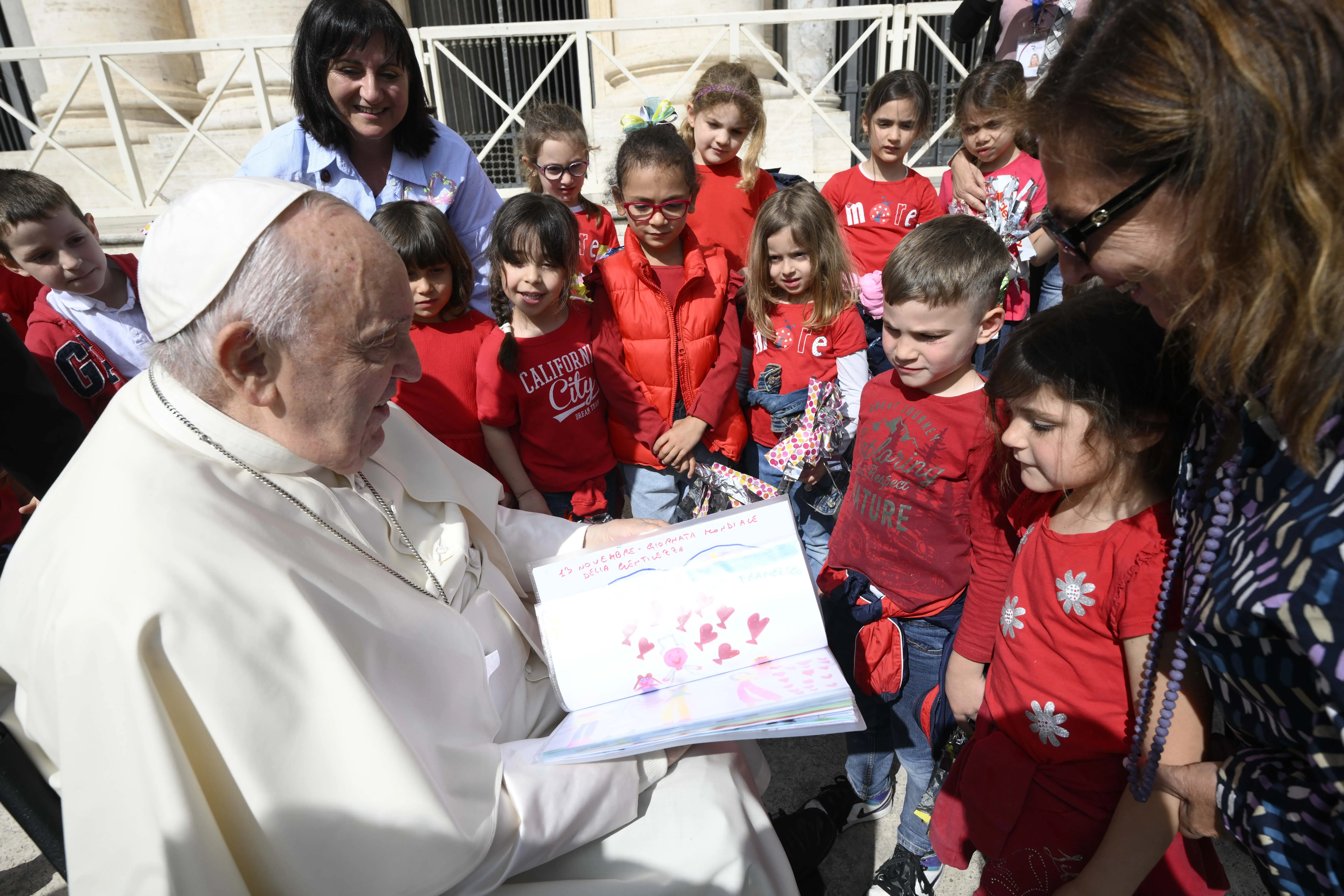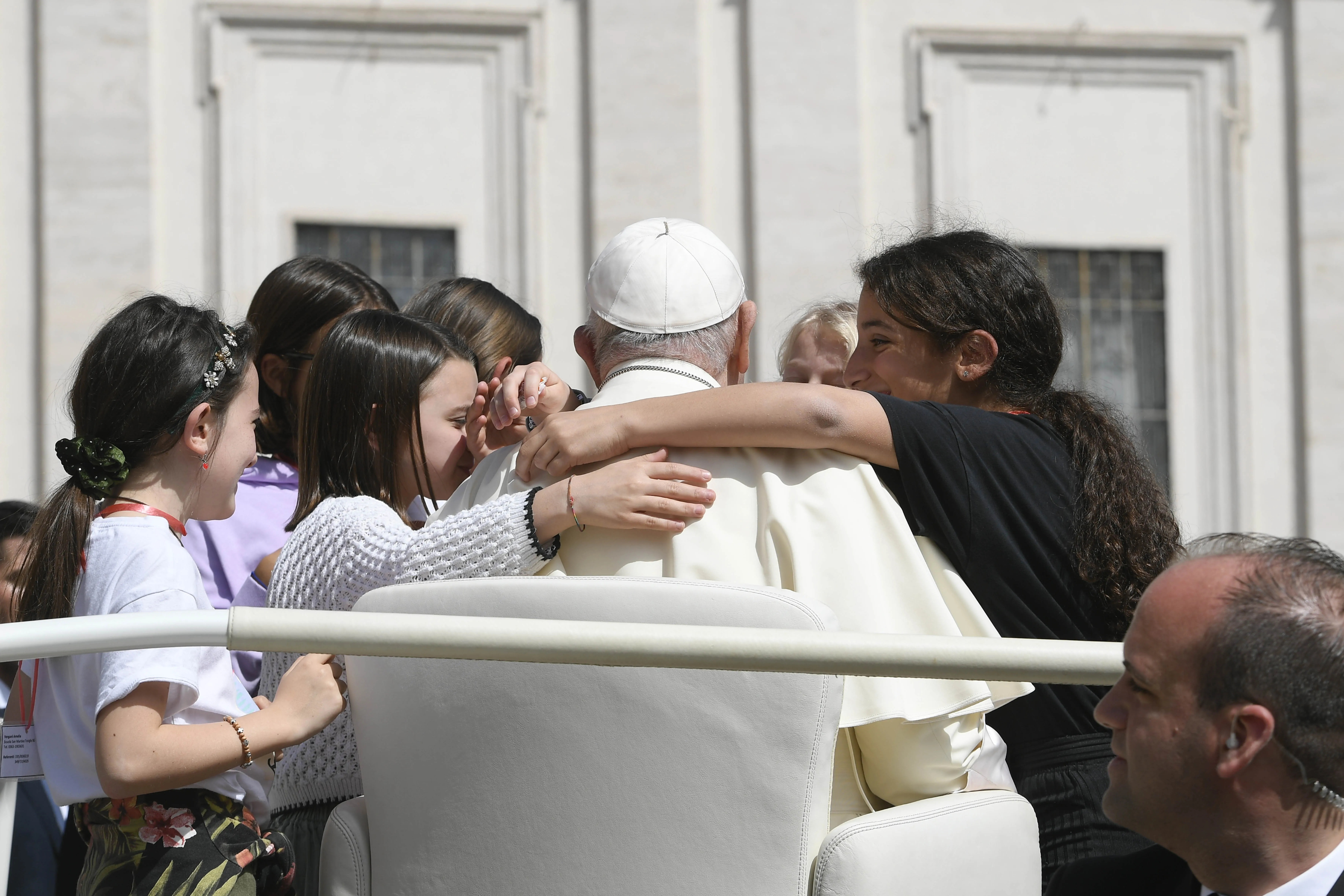http://www.myspiritfm.com/News?blogid=8838&view=post&articleid=275201&link=1&fldKeywords=&fldAuthor=&fldTopic=0
 Canadian sculptor Timothy Schmalz told CNA that his monumental Stations of the Cross to be installed on the grounds of the Basilica of the National Shrine of Mary, Queen of the Universe in Orlando, Florida, is the fruit of nearly constant work over the last three years and is expected to draw thousands of visitors once completed this fall. / Credit: Timothy Schmalz
Canadian sculptor Timothy Schmalz told CNA that his monumental Stations of the Cross to be installed on the grounds of the Basilica of the National Shrine of Mary, Queen of the Universe in Orlando, Florida, is the fruit of nearly constant work over the last three years and is expected to draw thousands of visitors once completed this fall. / Credit: Timothy Schmalz
Ann Arbor, Michigan, Apr 16, 2024 / 14:45 pm (CNA).
Canadian sculptor Timothy Schmalz told CNA that his monumental Stations of the Cross to be installed on the grounds of the Basilica of the National Shrine of Mary, Queen of the Universe in Orlando, Florida, is the fruit of nearly constant work over the last three years and is expected to draw thousands of visitors once completed this fall.
The 2,000-seat shrine is the closest Catholic church to Disney World in Orlando and is already well known for its striking works of sacred art. In addition, the church's 17-acre tract features a spacious esplanade and rosary garden.
To all of this will be added a Gospel Garden that will feature massive bronze Stations of the Cross sculpted by Schmalz. Some of the stations are slated to be 30 feet wide and as high as 14 feet tall, weighing thousands of pounds. Inauguration of the project is expected to take place around November, although a precise date has yet to be determined.
"Some of Christ's parables are embedded in the sculptures. In the foreground of each station is the principal scene, but in the background are the teachings of Jesus as well as symbols," Schmalz told CNA. "It is an unusual version of the stations in the sense that it is filled with the New Testament. For instance, station 13 has more than 100 saints. It is unlike any other sculpture I have ever created."
Schmalz explained that the 14 stations will be his most complex sculpture yet, second only to his acclaimed Angels Unawares that is now in St. Peter's Square at the Vatican and at Catholic University of America.
Now that his creative clay sculpting for the project is complete, Schmalz said that casting the final sculptures in bronze remains to be done by a specialized foundry. Initial installation of the bronzes should begin this autumn in Orlando.
Orlando may be an especially fruitful locale for this work of evangelization, given that more than 58 million people throng each year to Disney World alone.
Speaking to the importance of visual arts, especially sculpture, Schmalz said that unlike film, "sculpture placed in a city center is like a film running 24/7 year after year. When I do a sculpture, I am conscious of the fact that it is frozen theater being performed and has to be right."
"I wanted it to be called the Gospel Garden rather than Stations of the Cross because when speaking of the stations, you are bringing your ideas of what they are. For some, it might be a boring experience. In many churches, the stations were made without much care. I wanted to make stations that are more intense than what is seen on film; so intense, that if you are not Catholic, you would want to become Catholic. You would want to learn more," Schmalz said.
Because so many children come to nearby Disney World, Schmalz also made certain that plenty of children appear in the work and see themselves in it. Saying that a sculpture such as the immense Christ the Redeemer in Rio de Janeiro, Brazil, may make viewers disconnected from its theme, he said: "When I started making the stations, I wanted them to be life-size. I wanted people to touch the hands of Jesus who is reaching out after falling with the cross."
Reflecting on the challenges faced by artists working on religious themes, he said: "Unless you do something spectacular, it's going to be invisible. That's how we are today. We have a society today where the Catholic Church is competing with mainstream culture. We have to be tough and strong. Even though we are dealing with the Gospels, with eternal truths, the execution often falls short."
"When I was growing up, I heard the famous quote attributed to Michaelangelo that the sculpture is in the stone and the artist's job is to release it. I believe that in some Platonic sphere or paradise there are great masterpieces, so it's my job as a sculptor to pull them to earth for people to see," Schmalz said.
Schmalz recounted that at age 19, he dropped out of a prestigious art school in Canada. "Pope John Paul II spoke of the culture of death. If you really want to see that, go to an art school. It is nihilism on acid."
Rather than clash with his instructors, Schmalz left for schooling on his own but with traditional masterworks as his guide to create Christian art.
"I was the most radical artist in Canada," he said, "because what I was doing with representing Jesus and the Virgin Mary was the only thing that was not allowed in an art gallery. There they wouldn't even call it art."
"Just like the Impressionists of the 1800s, who weren't accepted in the salons of the day, Christian art is not wanted in today's salons," Schmalz noted.
Schmalz came to world attention with his Homeless Jesus statue, which was first installed at Regis College in Toronto in 2013. The bronze depicts a human figure reclining on a park bench, which has been mistaken at times for a living person. Upon close inspection, viewers can see the marks of the crucifixion on its feet. Copies have since been installed in Capernaum, Israel; Fátima, Portugal; as well as many cities, including Detroit and Pope Francis' native Buenos Aires, Argentina. Schmalz's works are found in churches, universities, and public places in cities around the world.
Among Schmalz's other projects, he is also working on making sculptural representations of Pope Francis' 2015 encyclical Laudato Si', which laments consumerism, global warming, and environmental degradation. He also has a project in the works depicting the holy Eucharist and Blessed Carlo Acutis, the Italian teen who documented Marian apparitions and Eucharistic miracles.
Schmalz is also the official sculptor for the coming National Eucharistic Congress to be held this July 17–21 in Indianapolis.
Full Article
 Tennessee Gov. Bill Lee speaks during the signing of the ELVIS Act to Protect Voice & Likeness in Age of AI event at Robert's Western World on March 21, 2024, in Nashville, Tennessee. / Credit: Jason Kempin/Getty Images for Human Artistry Campaign
Tennessee Gov. Bill Lee speaks during the signing of the ELVIS Act to Protect Voice & Likeness in Age of AI event at Robert's Western World on March 21, 2024, in Nashville, Tennessee. / Credit: Jason Kempin/Getty Images for Human Artistry Campaign















